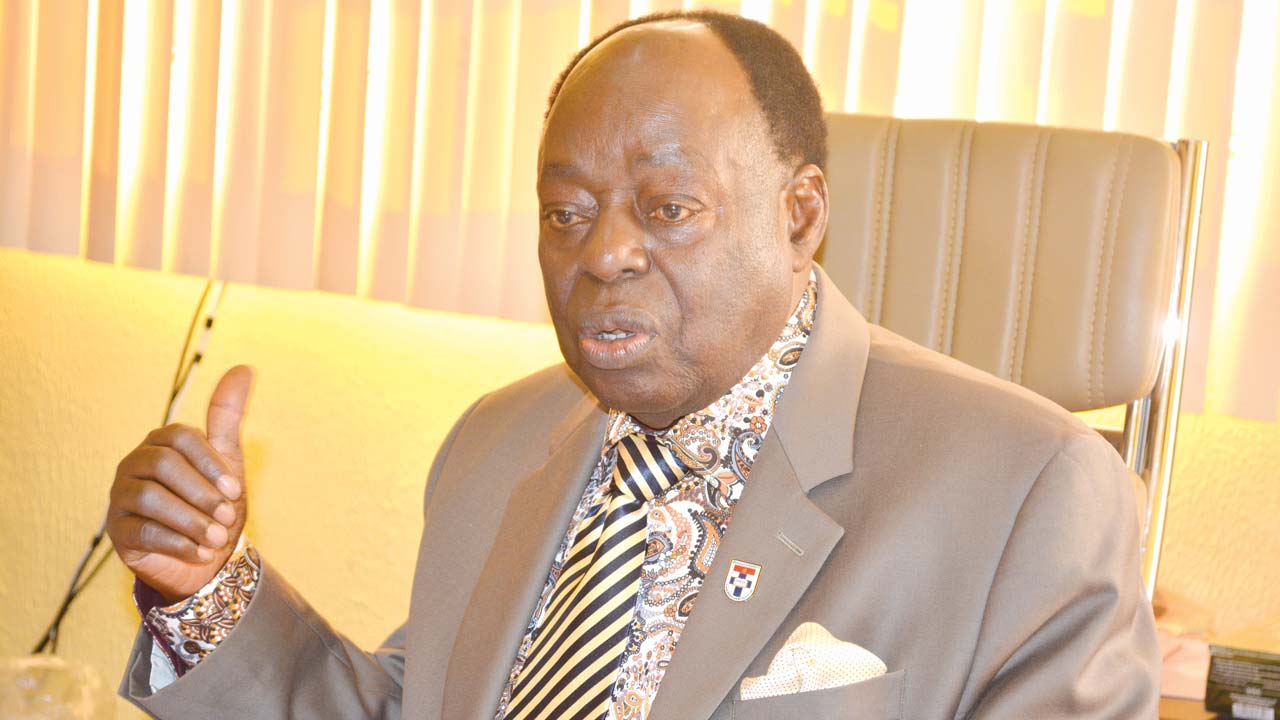Sixteen years ago, precisely on Friday, December 3, 2004, at the Sheraton Hotels and Towers, Ikeja, Lagos, I listened with real curiosity to the current Coordinator, Presidential Amnesty Programme, Professor Charles Dokubo, then a staff of the Nigerian Institute of International Affairs (NIIA), speak passionately to underline his position and express the depth of his conviction, at a one-day workshop organized by a civil society organization. The workshop had as theme; Expanding Access to Effective Remedy for Violations of Economic, Social and Cultural Rights in the Niger Delta.
On that day, at that time and in that place, among other things, Dr. Charles Dokubo, as he then was, stated that; the Niger Delta region was the most backward in the country and urged the government to work towards ensuring economic rehabilitation and environmental resuscitation for the region.
The government, in his view, must desist from the current non-participatory approach to development in the region, but rather embrace a broad-based consultative approach that will give the people of the Niger Delta some sense of ownership over their own issues. He was also of the opinion that effective monitoring systems must be put in place to enhance democracy at all levels and that adequate sensitization and education on non-violent advocacy and engagement strategies to be made available to the people of the Niger Delta so as to achieve sustainable development. He submitted that to effectively resolve the Niger Delta crisis, the government and other Nigerians should begin to see the problem of the Niger Delta as a national one and not restricted to the region.
Indeed, from the above, it is clear that Professor Dokubo is but a clear thinker that can cull everything down into the right point-and capped with the capacity to create endless possibilities. It may, therefore not be categorized as an overstatement to conclude that the Federal Government consideration for a clear thinker to handle the broad economic, social and environmental challenges bedeviling the Niger Delta, and someone that will perform this patriotic responsibility, and provide this care at both moral and fundamental level, informed the appointment of Professor Charles Dokubo, as the Special Adviser to the President on Niger Delta And Coordinator, Presidential Amnesty Programme, on March 13, 2018, by President Muhammadu Buhari.
His appointment without any shadow of the doubt has inspired millions of Niger Deltans with the hope of brighter prospects for the Presidential Amnesty Programme –which happens to be one of the most sensitive initiatives established to bring peace in the troubled Niger Delta region via disarmament, empowerment, and reintegration of the youths. Naturally, such high profiled but merited appointment will not go without eliciting traditional sets of reaction. First, while some commentators viewed the appointment of Dokubo, a native of Abonema, Akuku-Toru Local Government of Rivers State, and the Director of Research and Studies at the Nigerian Institute of International Affairs, as Mr President’s ‘smart’ way of returning the problem to the owners for solution, others view the development as well-intention, since like his predecessors, Dokubo, is from the region, and aware of what the people stoically endures. Such experience they submitted, will spur him to performance that will reverse the present predicaments facing the region; bring out something different that will help shape the region; and rededicate, promote and intensify resource generation that all federating units can utilize.
Talking about a similar programme at the global stage and its inherent benefits, a particular one that naturally comes to mind is Burundi’s demobilization programme, described as a social transfer programme combining cash and in-kind benefit and lasted between 2004 t0 2010.
As documented by Olivia D’ Aoust, Olivier Sterok and Philip Verwimp, the 1993-2009 conflict in Burundi was driven by years of ethnic discrimination. In the year 2000, the Arsha Peace Agreement laid the foundation for a peace process and a new constitution based on power-sharing and de-ethnicized political competition.
The programme was coordinated by the World Bank, and organized in three phases; the demobilization, reinsertion, and reintegration. The demobilization phase started with disarmament followed by the transfer of the combatants to the demobilization centre. Ex combatants spent eight days in the centre, attending training on economic strategies and entrepreneurship opportunities as well as peace and reconciliation.
As part of the reinsertion phase, demobilized combatants received a cash allowance worth months’ salary, paid in four installments over a period of eighteen months. Demobilized combatants received the first re-insertion payment when leaving the demobilization centre, called the transitional Subsistence Allowance (TSA) by the World Bank, the reinsertion money was dedicated to ‘enable an ex-combatant return to their community and to sustain themselves and their families for a period of time.
Comparatively, when one juxtaposes this account with our amnesty model, the missing link becomes evident. There is a long history of inabilities on the part of the nation’s successive amnesty handlers to come up with, and implement a well-foresighted plan as demonstrated in Burundi. These particular failure/failings have forced many Nigerians at different times and places query the handler’s intelligence and in some cases concluded that most of the former coordinators lack distinct set of aptitude a leader must demonstrate in three central context of work; the accomplishments of task, working with and through other people, and judging oneself and adapting one’s behaviors accordingly. Although Professor Charles Dokubo led administration is in my views making frantic effort to change the narrative, but judging from both the operational matrix as well as the environmental dynamix, this may be a very difficult task to achieve. This voiced opinion is based on two separate but related arguments.
First, apart from stakeholders questioning the wisdom behind teaching a man to fish in an environment where there is no river to fish or training a man without job creation plan, how will FG explain the fact that the amnesty initiative which was programmed to empower the youths of the region via employment has finally left the large army of professionally-trained ex-militants without job. In fact, the region and of course nation is in a dire state of strait because unemployment has diverse implications.
While pointing out that security wise, large unemployed youth population is a threat to the security of the few that are employed, and any transformation agenda that does not have job creation at the centre of its programme will take us nowhere’,
The second arguments thrive on the belief that the amnesty programme in the estimation of the Nigerian government is succeeding, as there is relative peace in the region. And since the exploitation of the region is going on unchecked with the privileged political class flourishing in obscene splendor as they pillage and ravage the resources from the region at will while the people of the region diminish socially and economically. But looking at commentaries, the Niger Deltans with critical interest, are not particularly happy that the FG has abandoned the original amnesty document as proclaimed by Yar’Adua which was meant to stand on a tripod-with the first part of the tripod target at disarmament and demobilization process; the second phase to capture rehabilitation which is the training processes, while the third phase is the Strategic Implementation Action Plan. This last phase, they noted, was designed to massively develop the Niger Delta, but fortunately ignored by the Federal Government.
Regardless of what others may say, proper management of these teaming youth and integrated development of the region are the panacea to determining the success or otherwise of the programme. It is only by engaging these teaming youths through employment creation that the incessant youth restiveness can be arrested. However, if we look hard enough at the moment, we will as a nation discover that the challenge confronting the region is neither rooted in Professor Dokubo’s leadership nor rests on the Presidential Amnesty programme but principally lies in the system The region in my view is poor because the Federal Government has become reputed for taking decision that breeds poverty coupled with the fact that policymakers do not know how to get rid of such failures, but instead, heeds the wrong advice. To change this narrative, the only step that will inject a new plot to this old story is for the FG; like Dokubo noted 16 years ago, to desist from the current non-participatory approach to development in the region, but rather embrace a broad-based consultative approach that will give the people of the Niger Delta some sense of ownership over their own issues.
Jerome-Mario Utomi wrote from Lagos, Nigeria.






